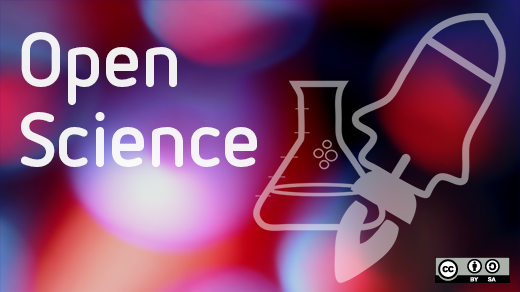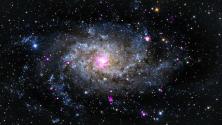Recent developments in the world of open source have had far reaching impacts more so than most critics initially envisaged. For example the recent announcement that the National Aeronautics and Space Administration (NASA) is committed "... to the principles of open government" and "... (to) encouraging innovation and entrepreneurship," and thus will be releasing source code for an array of its software projects, hits home to the authors of this article.
I, along with the other contributors to this article mentioned below, work for NASA and are also actively involved in the open source community through a number of open source efforts at the Apache Software Foundation. NASA’s broader scale of contribution beyond our efforts and the overall impact of NASA as an agency on the open source community are encouraged and covered by various press outlets and media, but the direct impact felt by everyday open source enthusiasts and developers tends to be varied and diffuse. Open source developers participate in diverse communities that are unique in scope, purpose, and meaning, and thus can be considered as individual environments where processes work differently, issues of varying degrees are tackled and (hopefully) resolved in unpredictable manners; and where consensus is "usually" met with the interests of the community as a primary objective. In this article, we try and overcome the diffuse and varied open source communities by highlighting a contribution from NASA to the broader open source community that is already extremely impactful today and has the ability to unite many open source communities.
This contribution centers around helping scientists, decision makers, software developers, educators, and interested users to better understand the Earth’s climate. First, some background on this exciting area and its connection to open source.
Earth scientists, including remote sensing experts, climate modelers, practitioners, policy makers, and decision makers, have had a hand in furthering and monitoring the open source space. For example, the climate modeling community executes its daily operations of building, testing, and validating climate and Earth system models, many of which today are open source, released under Open Source Initiative (OSI) approved licenses, and software packages that involve community contributions from very diverse participants. Similarly, the remote sensing community leverages open source packages, including Python and R, as well as non-open source, but community oriented packages, such as MATLAB, ENVI/IDL, and other software to share code, disseminate it amongst the community of experts, and also to process remote sensing data.
Our focus within Earth science is restricted to modeling at the regional scale, which is essential for projecting the impacts of climate change on society and our natural resources. Functionality, such as quantifying model biases, is critical to characterizing the uncertainties associated with these modeled climate change projections, and it is similarly an essential step in developing and improving climate and Earth system models. The driving force behind advancing knowledge in these fields of models and Earth observation systems is a collaboration between engineers and scientists at NASA's Jet Propulsion Laboratory (JPL), along with the Goddard Space Flight Center (GSFC), the broader and diverse project committee of members involved in the international Coordinated Regional Downscaling Experiment (CORDEX), Howard University, many other institutions, and other project stakeholders. It is therefore with this scientific setting in mind that we delve further into this tale as we introduce Apache Open Climate Workbench (Apache OCW), an open source project furthering Earth Science.
Apache Open Climate Workbench
Apache Open Climate Workbench is an effort to develop a software library that facilitates, but is not limited to, climate model evaluation using model and observational datasets (including remote sensing data) in heterogeneous formats and resolutions from a variety of sources, including the Earth System Grid Federation (ESGF), the Coordinated Regional Downscaling Experiment (CORDEX), the North American Regional Climate Change Assessment Program (NARCCAP), NASA, NOAA, and other agencies. The Apache OCW toolkit includes capabilities for data extraction, data manipulation, metrics computation, and visualization. Real world applications of the Apache OCW include research projects based on understanding atmospheric conditions, and climate patterns in the United States, Africa, the India-Tibet region, and South Africa.
The true beauty and innovation of the Apache OCW as an open source project was demonstrated even from inception. The project was born out of refactored code donated by NASA JPL from the Earth science community’s Regional Climate Model Evaluation System (RCMES), a joint project between the Joint Institute for Regional Earth System Science and Engineering (JIFRESSE), and a scientific collaboration between the University of California at Los Angeles (UCLA) and NASA JPL. Furthermore, the Apache OCW leveraged Apache Object Oriented Data Technology (OODT) to manage the massive datasets associated with Earth science related projects. The Apache OCW project was then integrated back into the donor code to more efficiently power that project. Notwithstanding, the object-oriented approach to creating a core set of libraries has scaled the usability of the project beyond climate model evaluation. One example is featured in the U.S. National Climate Assessment (NCA) released in May 2014, where multiple climate studies were supported technically by the RCMES project and powered by Apache OCW. In another example, libraries from the Apache OCW were adapted to facilitate an ongoing study regarding understanding mesoscale convective complexes’ characteristics and climate variability.
In addition to the above, the suite of open source projects at NASA JPL related to water, ice, and snow have provided critical insights ranging in scale from regional water supplies to global snow and ice cover. These projects have leveraged open source methods to enable transparent and community driven code development, which is critical to advancing scientific discovery. It takes many individuals working in unison to advance science and our understanding of the world we live in and beyond. Experts at NASA JPL, in collaboration with various stakeholders, pursue this goal tirelessly.
Apache Open Climate Workbench is licensed under the Apache Software License v2.0, the most permissive open source license on the planet. Check the project out at http://climate.apache.org.
Special thanks to these contributors to this article: Dr. Chris Mattmann, Dr. Annie Bryant Burgess, and Dr. Kim Whitehall
And, of course, special thanks to the individuals and agencies who contribute towards the ongoing success story which is Apache Open Climate Workbench.
View the complete collection of stories for Open Science Week.








Comments are closed.